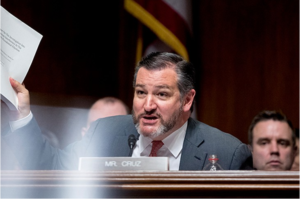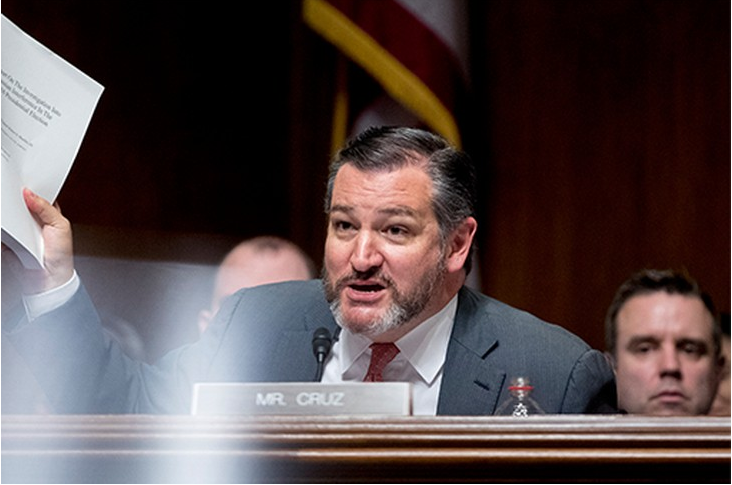
I appreciate Senator Ted Cruz’s effort – and his many other efforts – but his bill ending endless Congressional terms isn’t a solution.
I am loathe to question Senator Cruz on Constitutional questions – but his bill raises Constitutional questions. We had to amend the Constitution to term-limit presidents. I would imagine we’d need to do the same thing to do the same thing to Congressmen.
And it almost certainly isn’t a practical solution. How many members of Congress will vote to limit their time as members of Congress?
Meanwhile, term limits just turn more elected officials more rapidly into more lobbyists.
And term limits accidentally, massively over-empower residual Hill staffers – who aren’t elected and aren’t term limited.
All of which is demonstrably worse than what we have now.
To solve the problems – we must address the actual problems. Implementing term limits doesn’t do that.
In the House – that means ending gerrymandering. For the Senate – we must repeal the Seventeenth Amendment.
In the House:
“(A) practice intended to establish an unfair political advantage for a particular party or group by manipulating district boundaries….
“Two principal tactics are used in gerrymandering.
“‘Cracking’ (i.e. diluting the voting power of the opposing party’s supporters across many districts).
“And ‘packing’ (concentrating the opposing party’s voting power in one district to reduce their voting power in other districts).”
Gerrymandering is government officials choosing us – rather than us choosing them.
Term limits replace old Nancy Pelosis with…young Nancy Pelosis. Because 80+% of Congressional districts are gerrymandered to an overwhelming Democrat or Republican advantage.
Hyper-churning hyper-partisans in and out of Congress solves nothing.
Ending the creation and empowerment of hyper-partisans does.
That means ending gerrymandering.
In the Senate:
“(E)stablished the direct election of United States senators in each state. The amendment supersedes Article I, §3, Clauses 1 and 2 of the Constitution, under which senators were elected by state legislatures.”
We must return to the pre-Seventeenth Amendment status quo. Because it served as a massive check on federal spending – and myriad other overreaches.
Unfunded mandates are federal laws that force state legislatures to spend money – without giving them any. If Senators were again accountable to their state legislatures – unfunded mandates would receive almost no Senate votes.
That means awful bills like Obamacare – never, ever would have passed.
“Hello, state legislators. It’s me – US Senator X. I know I just dumped a metric ton of new spending mandates upon you.
“Since we’re not giving you any money to pay for them – you will have to dramatically increase state taxes. Which I know will make you all even more popular with our constituents.
“Well, despite all of that – I’d really like you to send me back to Washington to continue screwing you all in this fashion.”
How do you think those state legislature votes for those Senators will go?
So, we have uber-warped, overwhelmingly-one-sided House districts. And overly-politicized Senate seats that are instead supposed to be filled by – and accountable to – state legislatures.
And then we stare blankly at DC – and wonder why it has all gotten so partisan and awful. And stare blankly at our country – and wonder why it’s riven with irreconcilable differences.
Term limits is a top-down, DC-centered “fix” – to problems caused by top-down, DC-centered “fixes.” That actually fixes nothing. And actually makes things worse.
The real solution is to fix the actual, original problems.
End gerrymandering – and repeal the Seventeenth Amendment.
And restore the proper accountability, roles and responsibilities of government at every level.
This first appeared in Red State.

